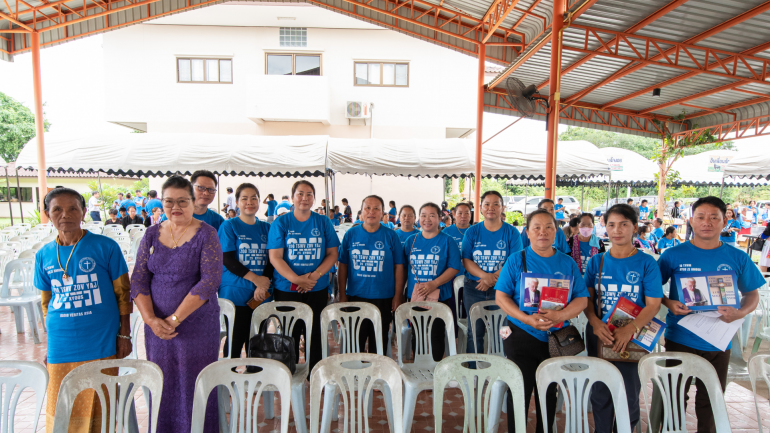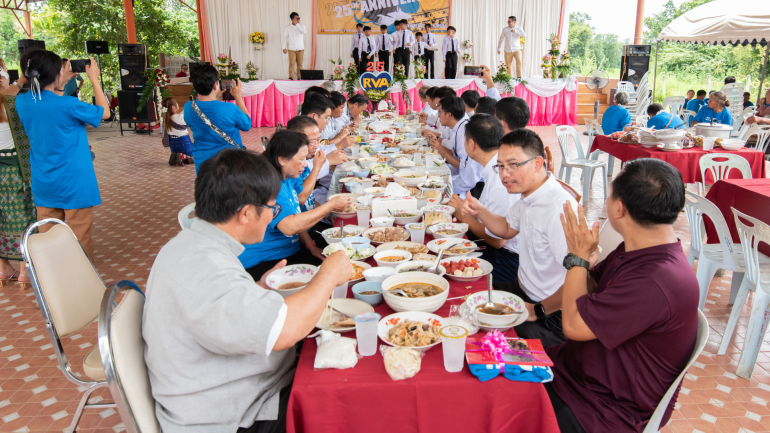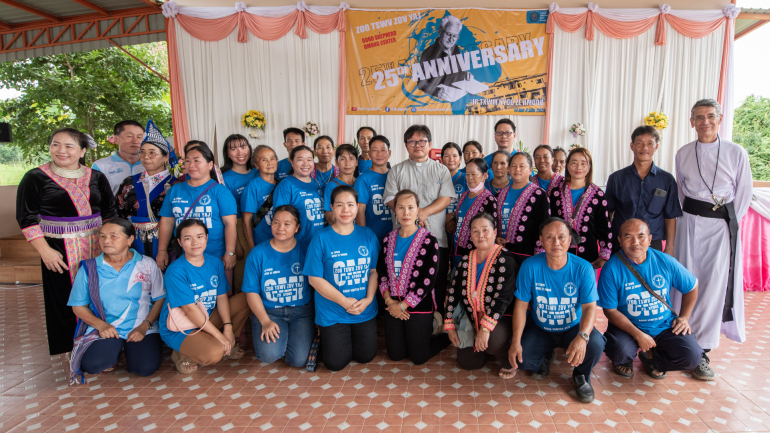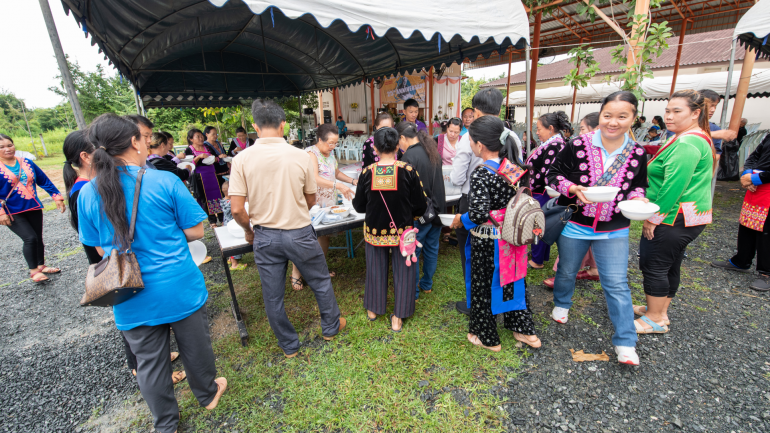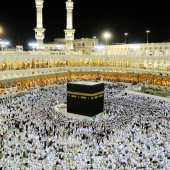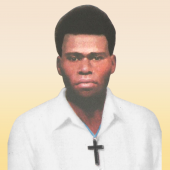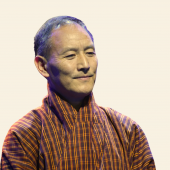25 Years of faith and service: Celebrating the RVA Good Shepherd Hmong Center in Thailand

On September 13-14, 2024, the Oblates of Mary Immaculate celebrated the 25th anniversary of the RVA Good Shepherd Hmong Center in Lomsak, Thailand.
This milestone event was marked with deep gratitude for the enduring legacy of mission and service.
The celebration was highlighted by a Eucharistic service presided over by Mons. Louis Chamniern Santisukniram, attended by nearly 500 people.
During the homily, Mons. Chamniern reflected on the legacy of Father Yves Bertrais, a key figure in the evangelization of the Hmong people, stating, “The Hmong people have to be missionaries through their lives, following the example of Christ’s life.”
The emeritus bishop warmly remembered welcoming Fr. Bertrais to his diocese in 1999, where the foundation of the RVA Hmong Center was laid, marking a new chapter for the local community.
The "Hmong" people are well-known as a resilient ethnic group originally from China. Over centuries, they migrated to the mountains of Southeast Asia, fleeing persecution and conflict from neighboring powers.
The Hmong have a long history of defending their lands, often finding themselves on the losing side of regional conflicts. After the Vietnam War, many Hmong were forced to seek refuge in countries like France and the United States.
The Oblates of Mary Immaculate began their mission work with the Hmong people in the early 20th century, as part of their outreach in Laos.
Initially, there was no clear strategy, but through the guidance of Providence, missionaries who encountered the Hmong during their apostolic visits felt a deep call to serve this marginalized tribe, recognizing its unique culture, language, and spiritual needs.
Father Yves Bertrais’s journey with the Hmong began in 1948, when, with little more than a bicycle and a heart set on evangelization, he moved to live in a Hmong village.
When asked about his decision, Fr. Bertrais’s simple yet profound response was supported by his superior with the words, “If you want to go, you can go.” What seemed like an ordinary journey became a monumental chapter in Hmong history.
Father Bertrais’s work extended beyond spiritual service; he made a lasting contribution to the preservation of the Hmong language and culture.
He developed the Romanized Popular Alphabet (RPA) for the Hmong language, a system still in use today. In fact, Google Translate uses the very script invented by Fr. Bertrais over 70 years ago, a testament to his far-reaching influence. Thanks to his efforts, the Hmong people now have a vital tool to maintain their language, culture, and traditions.
Father Yves Bertrais was not alone in his dedication to the Hmong people. Other Oblates of Mary Immaculate also devoted their lives to supporting the Hmong, following them through their migrations and helping them settle in new lands.
These missionaries, driven by love and a desire to connect the Hmong with Christ, used every tool at their disposal to achieve this mission.
Bertrais sought help from Radio Veritas Asia in Manila, broadcasting the first Hmong-language program on December 1, 1994. His efforts didn’t stop there; he also translated and published books to enhance Catholic teaching.
In 1999, he founded the Good Shepherd Hmong Center in Thailand, equipped with an office, recording studio, and a dedicated team to continue the production.
For 25 years, the RVA Good Shepherd Hmong Center has been a key institution for Hmong communities worldwide. Although Bertrais left Thailand in the early 2000s, his mission continued through the Oblates of Mary Immaculate, who carried forward his legacy.
With the rise of the internet and social media, the center expanded into multimedia production, maintaining the same values while adapting to new forms of communication.
The center’s significance was evident during the 25th-anniversary celebration on September 14, with attendees from the U.S., France, South America, Vietnam, Laos, China, and Thailand.
The first day included a commemoration of Father Bertrais, a reflection on the role of Radio Veritas Asia's Hmong service, and a vibrant cultural show.
The second day saw nearly 500 participants at a roundtable discussion and Holy Eucharist. Bishop Louis Chamniern Santisukniram highlighted the importance of evangelization through the witness of missionaries and catechists, whose lifelong dedication brought the fruits of faith to the Hmong people.
Their commitment was clear during the celebration, a testament to the lasting impact of the RVA Good Shepherd Hmong Center.
As the RVA Good Shepherd Hmong Center marks its 25th anniversary, it stands as a beacon of faith and cultural preservation, continuing the mission of Father Bertrais and the Oblates of Mary Immaculate in serving the Hmong people with dedication and love.
Radio Veritas Asia (RVA), a media platform of the Catholic Church, aims to share Christ. RVA started in 1969 as a continental Catholic radio station to serve Asian countries in their respective local language, thus earning the tag “the Voice of Asian Christianity.” Responding to the emerging context, RVA embraced media platforms to connect with the global Asian audience via its 21 language websites and various social media platforms.





